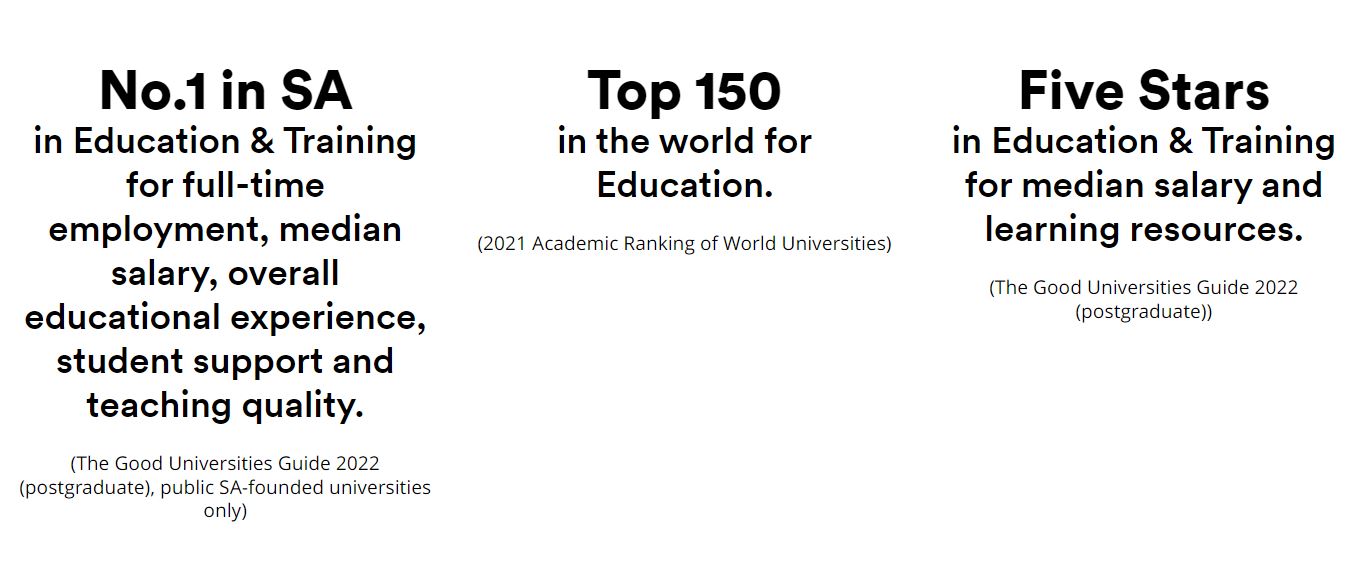
We need quality, passionate teachers more than ever.
Australia relies on its teachers to provide a future for our children. Their influence on the future of our country is undeniable, and in uncertain times, up-to-the-minute skills and knowledge is vitally important.
Now is the right time to take the first steps on your journey to become a teacher – be it in Early Childhood, Primary, Secondary or Inclusive and Specialised Education. If you’ve considered teaching before, or are looking for a career change, now is the time to act.
7 reasons to become a teacher
1. Change a child’s life for the better
Think about your most inspiring teacher… how they made you feel. You could become that teacher.
The number one reason to become a teacher is because you care about the education of children and young people. As a teacher, you’ll be able to influence not just one, but hundreds or even thousands of lives for the better. Now that’s making a positive difference to the world we live in.
“I pursued teaching to play my part in making the world a better place. To give young people hope. To give them a voice. To advocate for them, and to positively influence their life path. To learn and grow alongside them. To celebrate their achievements. To be an important role model and part of their lives”.
– Brenton, Flinders University Master of Teaching (Secondary) graduate
2. Job security
Becoming a teacher means joining an industry with long-term career prospects.
Education is a fast-growing sector, with great job opportunities. The teaching profession is projected to have strong future growth* and is essential in ensuring our nation’s young people continue to receive a high-quality education.
* Labour Market Information Portal, Department of Jobs and Small Business. 2020 employment projections for the five years to November 2025.
3. In just two years you could be ready to inspire your first class.
Flinders University provides a variety of pathways to becoming a teacher. If you already hold a degree you may be eligible to study our two-year Master of Teaching, which prepares graduates to enter the teaching profession with confidence and competence.
If you don’t yet hold a degree you can study a four-year undergraduate degree, which enables you to focus your studies in an area that suits your interests.
“Flinders stood out for me because it has a strong focus on developing education courses. I am learning from academics who are accomplished and have attained mastery within their respective fields”
– Anthony Salerno, Flinders University Bachelor of Education (Secondary)/Bachelor of Science
4. Your days will be full of variety
No two days will be the same. You have the ability to add your own flavour to curriculum delivery, the curriculum itself evolves based on the latest research and requirements, and your students will no doubt have different questions, viewpoints and needs daily.
5. Ongoing professional development
Do you have a thirst for knowledge?
You’ll learn so much in your day-to-day work. Children and young people will constantly challenge and amaze you with their questions and lines of enquiry, and you’ll have the opportunity to review and incorporate new research and technology into your classes as developments occur.
Registered teachers are required to undertake a specified amount of professional learning to retain their registration. Requirements differ across states and territories, with a focus on furthering your ability to support your students.
6. Flexibility
The teaching profession is often seen as a great choice for parents or parents-to-be.
~10 weeks’ holiday per year is a favourable perk (although as teachers will tell you, this is a profession often requiring out-of-hours work and preparation), which enables those with school-aged children to spend this time together. Flexible working arrangements are also common for family care purposes.
7. Diverse career options
As a teacher, you’re not limited to teaching in a classroom environment. You can take your career further by upskilling or pursuing a specialisation.
Opportunities include working as a school coordinator or principal, curriculum and policy adviser in departments of education, or adviser to government departments and other policy-making organisations.
If you’re keen to specialise in an area of interest, postgraduate education options such as Special Education, Wellbeing and Positive Mental Health, and Counselling Vulnerable Children and Young People are available.

We need more teachers. We need people who will guide and teach the next generations of Australians. A career in education is a career filled with inspiration and a sense of achievement.
Be Fearless, and discover a rewarding, lifelong career.

